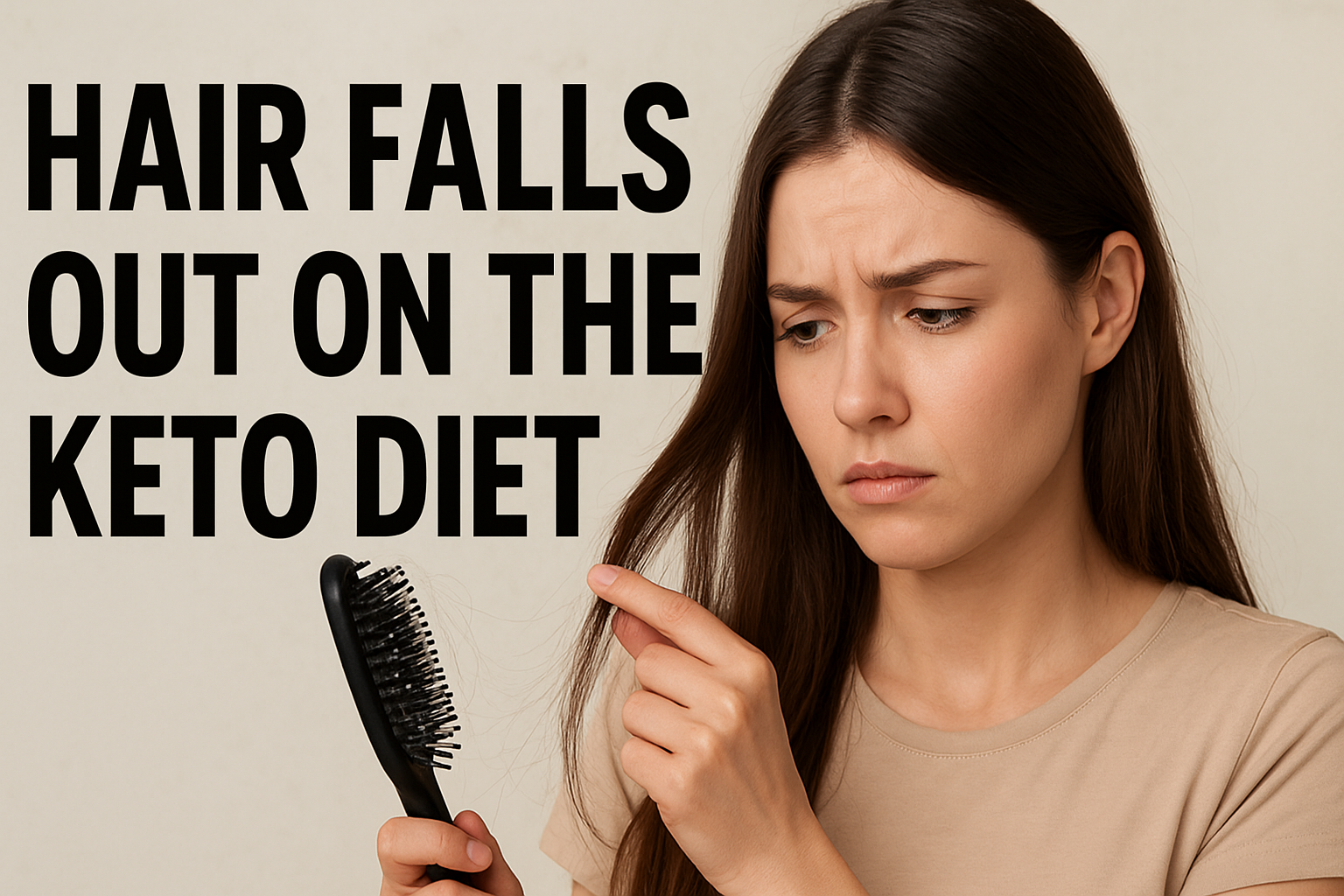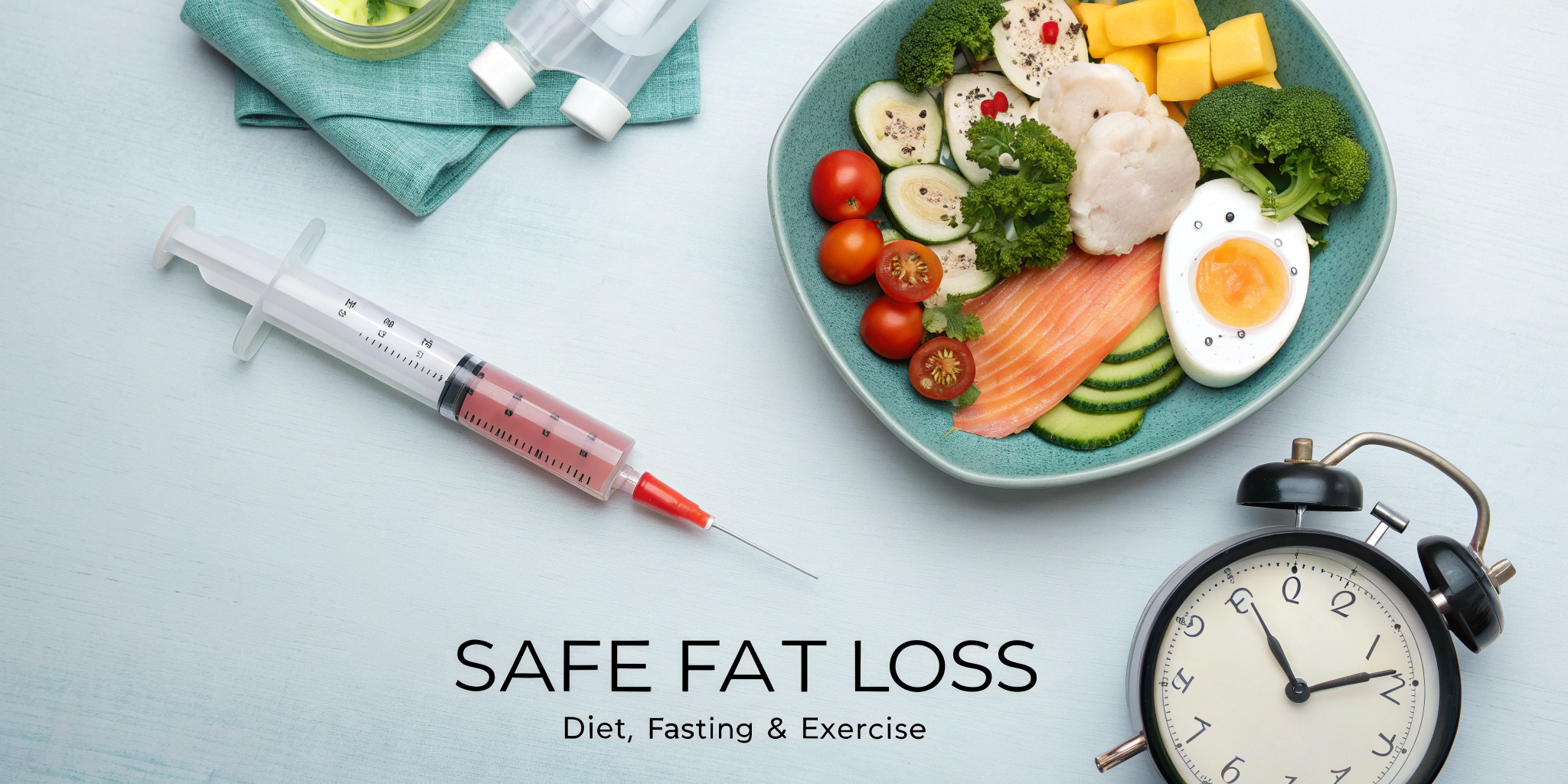Why Hair Falls Out on the Keto Diet and How to Prevent It
Hair loss is a common concern for people on a keto diet. Learn why it happens, the role of stress and nutrition, and proven strategies to prevent and reverse it.

Hair loss is one of the most common concerns among men and women, especially for those following the keto diet. While hair may seem like a cosmetic issue, it is closely linked to your overall nutrition and health. Here’s a professional guide on why hair falls out on keto and how to prevent it.
1. Stress and Rapid Weight Loss
When your body experiences stress—whether from dieting, intense exercise, or fasting—nutrition is prioritized for vital organs such as the brain, muscles, and heart. Hair and nails often receive lower priority, leading to temporary hair loss. Rapid weight loss on keto can exacerbate this issue.
Tip: Aim for a gradual weight loss of no more than 2–3 kg per month to avoid hair thinning.
2. Nutrient Deficiency
Hair requires proper nutrition to grow healthy. Keto dieters often reduce calories drastically, skip proteins, or neglect fat intake, which can affect:
-
Proteins & Amino Acids: Especially lysine, essential for hair growth
-
Zinc, Iron, and Vitamin B12: Found in red meat, eggs, and animal products
-
Vitamin D3 & K2: Vitamin D levels should ideally be above 70 ng/mL to support hair growth
-
Omega-3 & DHA: Help reduce inflammation and maintain scalp health
Tip: Eat enough protein (1.5–2 g/kg body weight) and healthy fats (ghee, coconut oil, butter) to support hair and hormonal balance.
3. Hormonal Balance
Many hormones essential for hair health, including testosterone, progesterone, and cortisol, are fat-soluble. Insufficient fat intake can disrupt hormone production, which may trigger hair loss.
4. Gut Health
A healthy gut microbiome converts nutrients efficiently. Poor gut health can lead to deficiencies that impact hair growth. A balanced diet rich in fiber, fermented foods, and probiotics supports both gut and hair health.
5. Hair Follicle Care
Hair grows from the follicle, which requires adequate blood supply and nutrients. Protect the follicles by:
-
Ensuring proper circulation through scalp massages
-
Avoiding stress on the body
-
Taking vitamins and minerals that support follicle health
6. Supplement and Natural Remedies
-
Vitamin D3 & K2 daily supplementation
-
Magnesium, Zinc, and Iron through diet
-
Red Meat & Eggs for high-quality protein
-
Onion Juice & Rosemary Oil: Studies show applying onion juice mixed with rosemary oil to the scalp 3–6 times a week for 6–8 weeks can significantly improve hair regrowth in many people.
7. Exercise, Sleep, and Lifestyle
-
Moderate exercise to improve circulation
-
7–9 hours of sleep daily
-
Reduce stress through meditation or gentle activity
Summary
Hair loss on a keto diet is often temporary. The main causes are stress, rapid weight loss, nutrient deficiencies, and hormonal imbalance. By gradually losing weight, maintaining proper nutrition, supplementing essential vitamins, and practicing scalp care, hair regrowth is achievable in 2–3 months.
Key Takeaways:
-
Avoid rapid weight loss
-
Consume adequate protein and healthy fats
-
Maintain vitamin D3 and K2 levels
-
Care for hair follicles and scalp circulation
-
Supplement or use natural remedies if necessary

Comments 1
Hair loss is one of the most common concerns among men and women, especially for those following the keto diet. While hair may seem like a cosmetic issue it is closely linked to your overall nutrition and health. Here’s a professional guide on why...